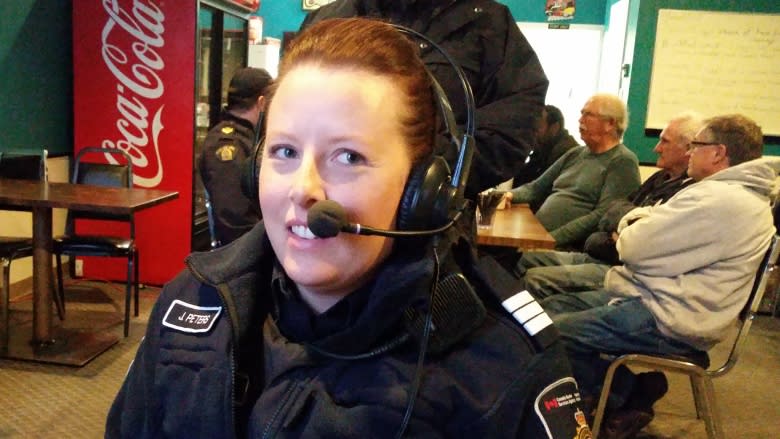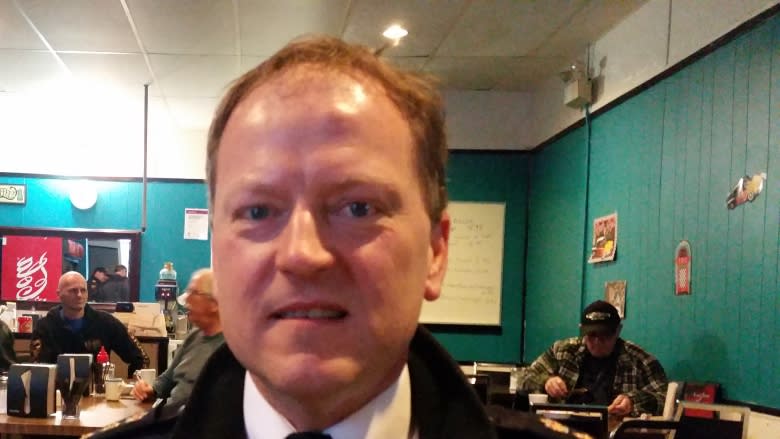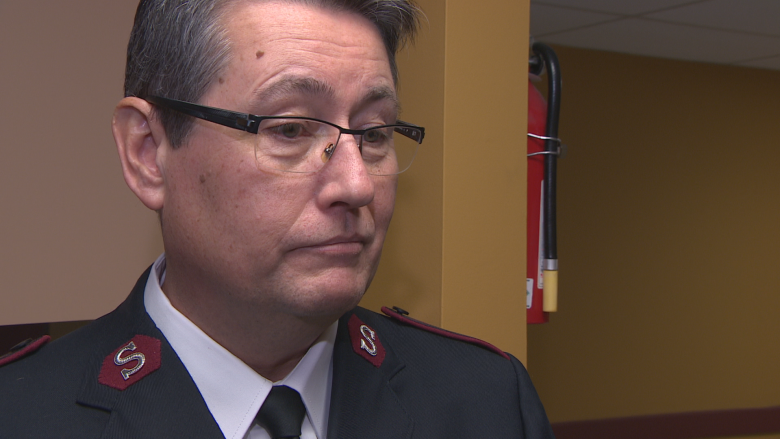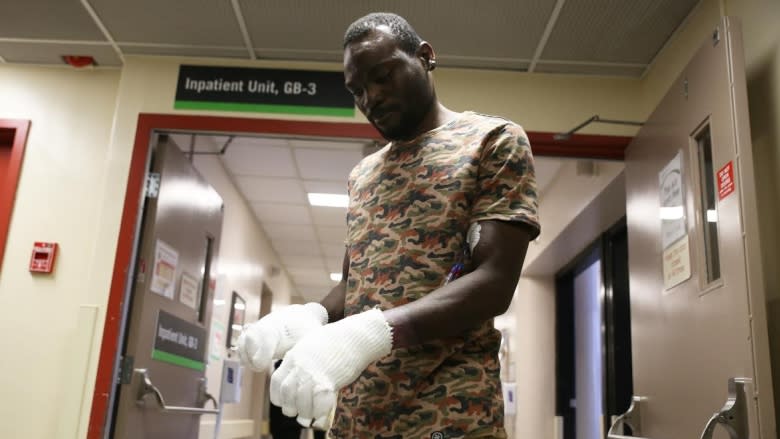Border services sets up emergency trailer to make space for refuge seekers
Two more asylum seekers were picked up by RCMP on Monday morning just minutes after the Canada Border Services Agency announced new resources to help with the influx of refugee claimants in southern Manitoba.
RCMP said 143 asylum seekers have crossed on foot into Manitoba this year, including at least a dozen on Sunday and Monday.
The Canada Border Services Agency has set up a trailer near the U.S. border to help asylum seekers through the refugee claim process and relieve some of the strain on emergency officials in the border town of Emerson, Man., about 100 kilometres south of Winnipeg.
More than 400 asylum seekers have walked into Manitoba in the past 10 months, many arriving under the cover of darkness in Emerson, where they've been helped by local emergency officials.
Expanded waiting room
The size of groups of border-jumping asylum seekers has increased in recent weeks, and border officers have been running out of space to temporarily keep asylum seekers in their office in Emerson.
"Our current office was being stretched," said Jeryn Peters, chief of operations with Canada Border Services Agency.
The new trailer will function as an "expanded waiting room" for the time being, she said.
"We're very well-trained and experienced in processing refugees and other clients, so we adjust our operations to manage it effectively," Peters said.
RCMP Chief Supt. Mark Fischer said asylum seekers appear to be crossing outside of what has become the normal range, "increasing the risk where they're crossing and the distance."
Two men from Ghana lost fingers and toes to frostbite after making the trek into Manitoba on Christmas Eve.
Refugees in homeless shelter
The Manitoba government announced funding for 14 additional emergency housing units Friday, as well as extra funds for refugee co-ordination services.
Rital Chahal, director of refugee settlement agency Welcome Place, said the 14 units will hold up to 42 people. They won't be up and running until Wednesday and will only be available until the end of May, she added.
The Salvation Army in Winnipeg stepped up earlier this month and offered up 30 beds in its homeless shelter to refugee claimants.
About 350 of the shelter's 400 available beds are occupied on any given day of the year, Rob Kerr, a Salvation Army major, said Monday.
As of Sunday night, 57 refugee claimants were staying in the shelter, he said.
"If the numbers keep increasing, and we don't see any of our current residents who are refugee claimants moving on, then it becomes a bit of a concern for us as to how we're going to do this going forward," he said. "Right now we're managing."
Abdi Ahmed, an organizer in the Winnipeg Somali community, said former refugees who settled in Manitoba are chipping in where possible.
"People are opening their homes," he said. "The refugee claimants who came here last year are housing refugee claimants who have arrived recently."
Premier Brian Pallister urged the federal government Friday to come to the table and work with the province to better co-ordinate border security and resettlement efforts in Manitoba. Pallister said Monday he plans to meet with U.S. officials this week to discuss next steps.
Safe 3rd Country
Many of the migrants to recently enter Manitoba first arrived in the U.S. and skirted the Safe Third Country agreement in the process when they crossed illegally into Canada on foot.
The pact between U.S. and Canadian governments states asylum seekers must file for refugee status in the first "safe" country they land in. Exceptions are made for unaccompanied minors and people with blood relatives in Canada.
Claimants trying to cross into Canada from the U.S. are supposed to be turned around at the border — that is, if they try to cross at an official border station. Trudge through a snow-covered Prairie field, and a United Nations convention on refugee protections kicks in that allows asylum seekers to file in Canada.
The Safe Third Country agreement has been the subject of criticism since it came into effect in 2004.
Critics and immigration lawyers have called for a suspension of the agreement claiming it encourages asylum seekers to risk their lives crossing through fields in the bitter cold.
- OPINION | 3 steps to regain control of immigration
Canada's Immigration Minister Ahmed Hussen, himself a former refugee claimant from Somalia, has stood by the agreement and the notion that it helps prevent "asylum shopping" among newcomers.





